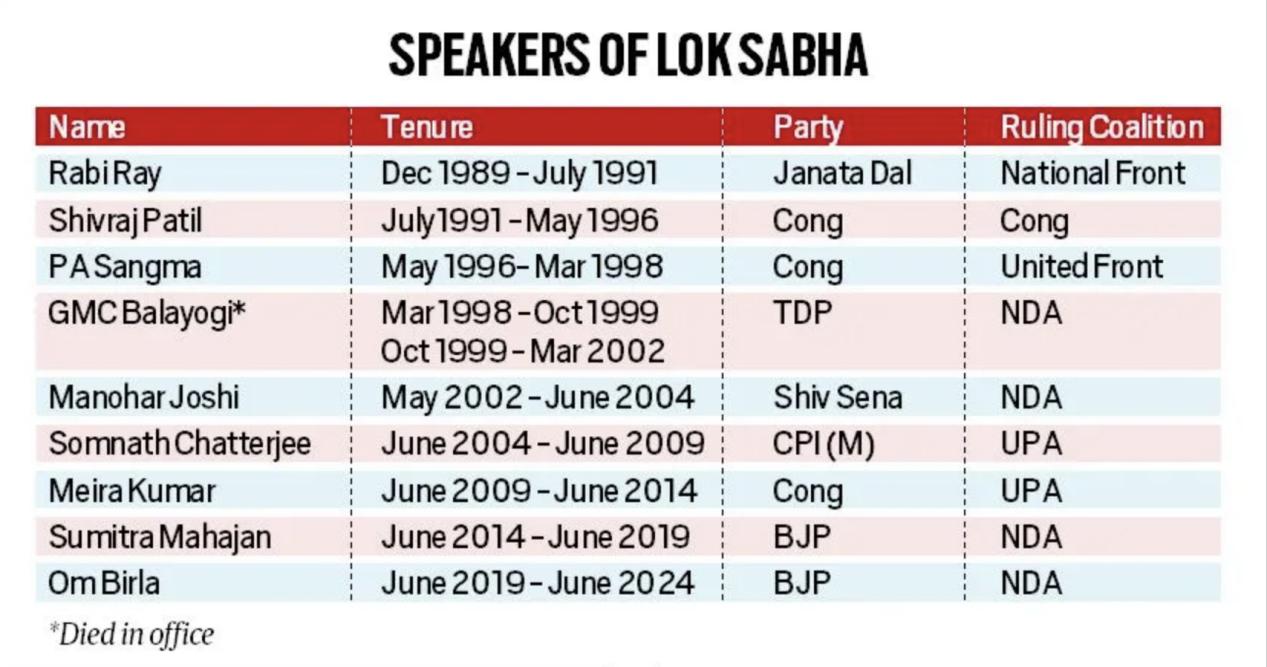Recently, as the 18th Lok Sabha convenes, political parties of the coalition are competing for the Speaker's post.
|
Pro Tem Speaker |
|
There are instances when members not belonging to the ruling party were elected to the office of the Speaker like GMC Balayogi and Manohar Joshi in the 12th and 13th Lok Sabha respectively.
When the Lok Sabha is dissolved, the Speaker remains in his office till the first meeting of the new assembly when the new speaker is elected.

In Kihoto Hollohan versus Zachillhu in 1992, the Supreme Court upheld the power vested in the Speaker and said that only the final order of the Speaker will be subject to judicial review.
In Keisham Meghachandra Singh case 2020, the Supreme Court directed the Speakers of Assemblies and Lok Sabha to decide such disqualification pleas within three months except in extraordinary circumstances.
References